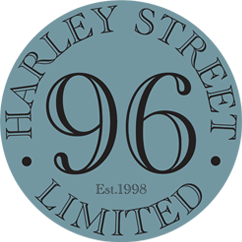
How are you getting on with wearing a mask? Are you glad to be doing your bit for society and hoping that you’re helping to contain this awful illness? Are you pragmatic? Do you wear it because you have to? Are you railing inside, feeling it’s an infringement of your own rights? Or have you decided to give up on going out and doing anything that requires wearing such a facial covering?
There are other options available to this question but it’s curious that we are having to discuss it at all. Who would have thought, even as late as March when lockdown started, that it would be made compulsory for all of us to wear masks when we are out and about?
A newspaper recently carried a cartoon of a man wearing a face mask, saying: “I’d never had imagined the time would come when I’d cover my face, walk into a bank and demand money.”
I find that funny but I also find the situation very, very odd. Our Western identity is very much wrapped up in baring our face. We are suspicious of those who conceal – or are concealed – behind a mask. If we can’t “read” a person, how can we know who they are?
We have characters in history to learn from, good and bad. For bad, think highwaymen, pirates, masked thieves stealing away in the night with swag bags over their shoulders. The Man in the Iron Mask is an in-between figure: feared because of his demeanour but trapped and controlled by his disguise. Inside was a man who had done no harm to anyone, locked up inside a mask simply because of who he was. Darkness and masks, there’s a theme there.
Good masked characters are available, in case you are beginning to feel bleak. Among the superheroes are Batman and Robin, Spiderman, the Lone Ranger and even Cat Woman, though she did have a devilish streak.
What they all had in common, however, was a desire to disguise who they really were. Whatever their role, these characters did not want their true selves revealed. The masks set them apart.
The difference for us is that we are having a mask imposed on us, whether we like it or not. Earlier in the lockdown, we were told they were unnecessary so we have to adjust our thinking from “not doing any good” to “wear a mask to avoid killing your fellow human beings”. I’m exaggerating of course but that, I would say, is the gist of the message. Whether we like it or not, we no longer have a choice. Mask up or stay at home.
For those of us who choose to go out, how will you wear your mask and what sort will it be? Will you ease it casually under your chin at first sign of open air, or will it stay firmly in place, metaphorically glued to your mouth and nose so that you obey the rules and limit the risk of infection? There you are, you are telling us a lot about yourself, even without saying a word.
You might decide to follow the style of trendy celebrities and “influencers” who are making a feature of their masks, designing ones to match their outfits. Mask as statement: a clever idea.
But what about we who wear them out of necessity, not accessory? We who go for the functional white-backed blue paper-type that the NHS hands out. They are not pretty to look at but they serve a purpose. Unless you wear glasses, then your breath tends to steam up the glasses, making it both hard to breath and see. It’s not a good look, and it makes shopping difficult.
Once out and masked up, there is the question of how we behave. I have been observing, and notice a mask does make a difference. Often, it is an extension of a person’s personality. If they are timid, they may become more timid – keeping their distance, hand up to face perhaps in a bid to ward off evil illnesses or unwanted attention. Conversely, a mask may allow a more confident soul to spread (usually a) himself further physically.
At the beginning of lockdown when only brave or desperate people ventured out and masks were still a rarity, I spotted a heavily shielded man pushing forward to get what he wanted from the shelves while tutting loudly at others who were also trying to get their food needs met. The irony was that he was coughing and spluttering too. I wanted to point this out to him but lost my nerve as he glared my way. It was a learning moment and, after three months of observing, I get the sense that a mask will bring out the extreme of a wearer, good or bad.
The lesson I’m taking is that I – a person who does not like wearing a face cover – need to adapt as best I can. If I am going to be forced to wear a mask for some time, I need to accept it with good grace and try to remember I am still on show, even if a part of me feels hidden. I should not use it as an excuse to behave “badly” or in a way I might not, if fully uncovered.
If we really want to be supportive of each other, maybe we need to work to ensure masks don’t bring out the worst in us. Maybe, instead, we could use our eyes – the “windows to our souls” after all – to signal that we wish our fellow travellers all the very best.
By Lulu Sinclair
Photo 1: Colin D on Unsplash
Photo 2: Alex Motoc on Unsplash


